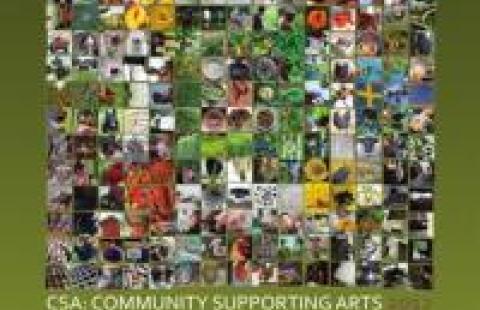What were the project goals?
To promote local artists and local farms and the vibrant and unique communities each represents.
Have they changed over time?
Not during the course of this project.
Who are the project partners and stakeholders?
The Kennebec Valley Art Association has about 300 artist members. This project was open to any Maine artist, not just our membership. Our partnering farmers are all operating CSA (Community Supported Agriculture) farms in and around central Maine. In joining a CSA, folks make a financial commitment to their farm by investing in a share of the produce at the beginning of the growing season. In return farmers are committed to producing the freshest, most flavorful, high quality food possible for their members (most CSA farms adhere to organic standards as much as possible). Typically each CSA member gets a weekly delivery of produce from early summer through harvest. Community Supported Agriculture is a grassroots response to the growing social and environmental problems of our modern industrial food system, and this local foods movement is transforming relationships between people, food and farms. According to the Maine Organic Farmers and Gardeners Association website, Maine’s CSA community includes over 160 farms with more than 6,500 families investing in their local food through the purchase of shares.
Granting agencies included Davis Family Foundation, Maine Community Foundation, Maine Arts Commission and individual donors through an Indiegogo campaign online last spring.
